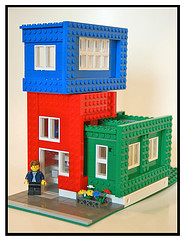The building blocks of enquiries…
 Helping students with more specialised subject searches is usually the realm of our Faculty Librarians and their assistants, but sometimes we Enquiries staff are asked questions which sit on the borderline of being specialist, and which we enjoy helping with. These are usually the more in-depth, specific questions that can’t easily be answered using a refined search on Discovery. So how do we know where to look for the answers? How do we know which particular resources will provide the right kinds of material?
Helping students with more specialised subject searches is usually the realm of our Faculty Librarians and their assistants, but sometimes we Enquiries staff are asked questions which sit on the borderline of being specialist, and which we enjoy helping with. These are usually the more in-depth, specific questions that can’t easily be answered using a refined search on Discovery. So how do we know where to look for the answers? How do we know which particular resources will provide the right kinds of material?
Last week, Enquiries staff (and others who were interested) attended an Architecture “masterclass”, designed to equip us with exactly this information.
Presented by the Assistant Faculty Librarian for Creative and Cultural Industries, the session began with a talk which took in a whistle-stop tour of the most useful resources, and focused on those which are not, for various reasons, part of the Discovery search. We also heard about the routes students take through their courses, professional accreditation, and the practical “real-life” assignments they undertake. It’s often the courses which lead to a specific career path, the ones which have the accreditations and so forth, which are the most tricky to support. Traditional academic subjects tend to use traditional forms of information – it’s rare, for example, to have a history student asking for architectural drawings or plans – whereas these types of courses will have very practical, and specific information needs. Being able to meet these needs is really important, so that we can offer the same service and experience to the many different types of student we work for.
Our guided tour took in the Royal Institute of British Architects Library catalogue, Construction Information Service, BCIS Costings Information, SPONS, Detail (and Detail Inspiration), the Phaidon Atlas and much more.
Then it was play time. Or work time, depending on your point of view. For me, exploring new databases, or rediscovering ones I’d forgotten about, is always feels more like fun than work, but maybe that’s just me? We were presented with a series of cards containing scenarios in which we were asked to find information from the resources we’d just heard about. For me, this is the very best way of learning. It’s one thing to be shown screenshots, and told how things work, but quite another to use it “in anger” to answer real questions. Having the scenarios to practice with is really valuable – have you ever tried thinking of a building to search for information on when asked to pick a random one? Suddenly, your mind is as blank as a, well, a very blank thing. Mimicking the enquiry situation is great too, because it forces you to search for things which might otherwise be outside your comfort zone. Each scenario was different, and asked for different information about a range of architectural structures and concepts.
The two hours we were allotted for this training raced by, and soon we’d reached the end. But those responsible weren’t finished with us yet! No, there was (optional) homework! Ten buildings to identify using the resources from just their architectural drawings… I do love a challenge!
Image credit:
CC BY-ND 2.0 by Puriri deVry via Flickr




Leave a Comment (note: all comments are moderated)